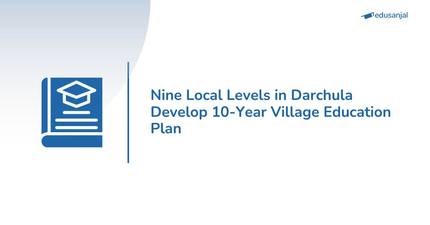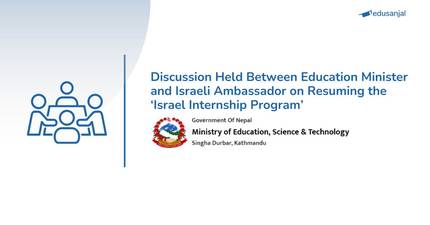The parliamentary subcommittee formed under the coordination of MP Chhabilal Bishwakarma has finalized the clause-wise discussions on the long-debated School Education Bill. Based on the agreements reached between the government and the Nepal Teachers’ Federation, the subcommittee has prepared a report addressing the majority of contentious issues.
One of the most notable changes proposed in the bill is the elimination of the Secondary Education Examination (SEE), marking a significant shift in Nepal’s secondary education evaluation system. Alongside this, the District Education Offices will be dissolved, aligning with the restructuring of the education governance mechanism under the federal system.
In a move aimed at streamlining teacher recruitment, the new provisions propose that 60 percent of teaching positions be filled through internal competition, while the remaining 40 percent will be open for general competition. Teachers who fail to qualify through the competitive process will be allowed to retire with facilities. Furthermore, headteachers will be appointed through competitive examinations conducted at the provincial level, regardless of their subject background, and will no longer be required to be subject teachers.
The bill also includes provisions to strictly regulate private schools, especially regarding the distribution and monitoring of scholarships. Teacher transfers will be allowed only every five to seven years, and each province will be required to have two special-grade teachers. The government will also standardize the number of administrative and support staff in schools and ensure timely promotions for teachers through a periodic promotion system.
The subcommittee was formed on Chaitra 8 to accelerate the legislative process and began its clause-wise review on Chaitra 18. It held 39 meetings within a span of 30 days, completing the bulk of its work well within the initial deadline. An additional 10 days were granted to finalize the report, which has now been completed and is set to be submitted to the main committee.
However, the issue of whether private schools should continue under the current company model or transition to a non-profit guthi model remains a major sticking point. The current draft of the bill allows private schools to operate as companies. Still, several lawmakers have argued that private schools should gradually be required to operate on a non-profit basis, drawing comparisons to the Medical Education Act, which requires private medical colleges to transition to a non-profit model within 10 years.
Some lawmakers have proposed a similar timeline for schools, suggesting that those enrolling in Grade 1 now should complete their schooling within institutions that operate under a non-profit framework. Others, however, argue that forcing existing company-model schools to convert would be impractical and could disrupt the sector. Due to the lack of a clear government position and differing opinions among lawmakers on how long the transition period should be, consensus on this matter has yet to be reached.
The committee is expected to resolve the remaining issues and table the finalized School Education Bill in the near future, bringing Nepal one step closer to a reformed and modernized school education system.













